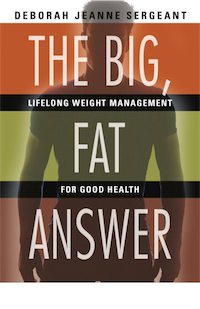 I used to think that Print-on-Demand (POD) publishers sold their services only to desperate writers not good enough to win a contract with a traditional publisher. I learned differently when I explored the publishing world more closely.
I used to think that Print-on-Demand (POD) publishers sold their services only to desperate writers not good enough to win a contract with a traditional publisher. I learned differently when I explored the publishing world more closely.
I am a professional writer, not a hobbyist. As my full-time career since 2000, writing has kept the bills paid. I know that I write well, but that’s not the only attribute non-fiction publishers want. They want writers who are already famous. This provides a ready-made market eager to buy their books.
I’m not famous. Though I regularly write for several periodicals, some of which are nationally distributed, I don’t have a huge following that would make my book a superstar. For example, anything that Jillian Michaels writes down will be published and will sell simply because she’s Jillian Michaels. An obscure person with a book equally as well-written likely won’t attract the attention she commands from publishers.
Agents pretty much want the same thing publishers want: famous people who can sell lots of books largely on their fame alone. Ghostwriters and co-authors can polish any shabby writing. It isn’t fair, but large publishing houses work this way to sell as many copies as possible and their owners know that Jillian Michaels will sell more fitness books than Deborah Jeanne Sergeant (who’s she?). POD publishers provide an equalizer for non-famous people with solid writing and great ideas.
As Angela Hoy accurately depicts, PODs vary from brazen vanity presses that publish all manner of slapdash claptrap (most POD publishers are this way) to selective publishers like BookLocker.com (a rarity).
Years back, on a whim, I submitted some fairly awful poetry to a vanity press to solicit their feedback and to test their validity. I laughed until I cried reading their response, which compared my verse to that of William Wordsworth! Their form letter urged me to send them hundreds of dollars right away to share those “gems” with the public and, of course, I had to buy numerous copies at full price as part of the deal.
Another POD publisher I briefly considered for a fiction manuscript wanted me to bring both a hefty fee and personal fame to the table.
Good PODs can provide better opportunities than traditional publishers. POD publishers like BookLocker offer writers higher royalties than standard publishers, more control of publicity and marketing, and ownership of the manuscript. Of course, if you hate marketing and don’t care who owns the manuscript, POD might not be the right fit for you. Then again, most traditional publishers don’t offer any free promotion for new authors, either.
I have read several POD books from shady vanity presses, and felt disappointed by quality, both in the writing and in the workmanship of the book.
When I received my copy of The Big, Fat Answer from Booklocker.com, its finish and quality impressed me. BookLocker’s designer, Todd Engel (Engel Creative) did a superlative job in creating the cover I wanted. The print is clear and sharp and the binding is perfect. Altogether, it was a top-notch experience. The book also lacks the annoying self promotion page usually found in POD books that advertise the publisher. BookLocker never inserts ads for its own services in its authors’ books.
For most writers who aren’t already celebrities, going with a POD is the only option, and also a very smart option. And, among PODs, Booklocker represents the most generous package. I’m already talking with Angela Hoy about my next manuscript.
Deborah Jeanne Sergeant has written on health topics for 14 years. Her recent book, The Big, Fat Answer, offers a multi-disciplinary approach to healthy weight management based upon 700 interviews with a broad spectrum of health care professionals. Visit her online at: https://www.skilledquill.net

